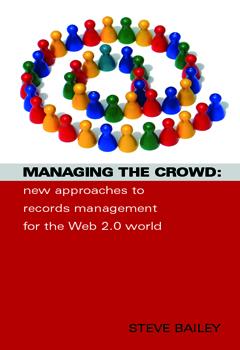
Primary tabs
You don't need to be an ALA Member to purchase from the ALA Store, but you'll be asked to create an online account/profile during checkout to proceed. This Web Account is for both Members and non-Members. Note that your ALA Member discount will be applied at the final step of the checkout process.
If you are Tax-Exempt, please verify that your account is currently set up as exempt before placing your order, as our new fulfillment center will need current documentation. Learn how to verify here.
- Description
- About the author
- Reviews
The evolution of Web 2.0 is continually changing the way users create and use information. Records managers must adapt to the constant change if they expect to survive. This provocative new book challenges records managers to reflect on these changes and to confront their once reliable methods and practices. Why not embrace folksonomies rather than classification schemes and metadata schemas as the main means of resource discovery for unstructured data? Why not adopt a ranking system that encourages users to rate how useful they found content as part of the appraisal process? Why not let the content creator decide whether there should be any access restrictions on the content they have created? Every records manager needs to read this challenging book, and those who do may never think about their profession in the same way again.
Steve Bailey
Steve Bailey is Senior Adviser, JISC infoNet.
"This is a timely text and Steve Bailey has done the records management community a great service in putting together this publication. It is recommended reading for records managers and the wider information sector. Now records management research and practitioner communities must continue to work together to address the challenges posed and to present answers."
— Business Archives
"This book is essential reading for any records manager who is willing is to question the validity of conventional methods and approaches."
— HEA-ICS
"This is an important book about an important question. The more people that read it the better. I have no hesitation in recommending it."
— Records Management Society Bulletin


